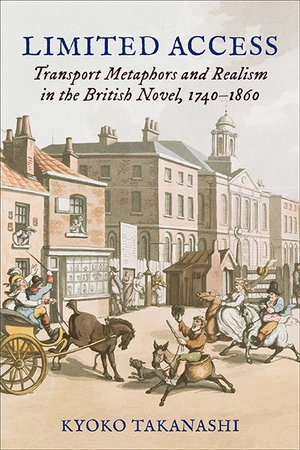Arecurrent trope in eighteenth- and nineteenth-century British fiction compares reading to traveling and asserts that the pleasures of novel-reading are similar to the joys of a carriage journey. Kyoko Takanashi points to how these narratives also, however, draw attention to the limits of access often experienced in travel, and she demonstrates the ways in which the realist novel, too, is marked by issues of access both symbolic and material.
Limited Access draws on media studies and the history of books and reading to bring to life a history of realism concerned with the inclusivity of readers. Examining works by Henry Fielding, Laurence Sterne, Walter Scott, Charles Dickens, William Makepeace Thackeray, and George Eliot, Takanashi shows how novelists employed metaphors of transport to constantly reassess what readers could and could not access. She gives serious attention to marginalized readers figured within the text, highlighting their importance and how writers were concerned about the "limited access" of readers to their novels. Discussions of transport allowed novelists to think about mediation, and, as this study shows, these concerns about access became part of the rise of the novel and the history of realism in a way that literary history has not yet recognized.

 The College of Arts
The College of Arts